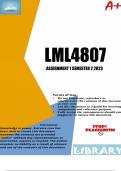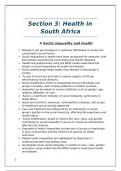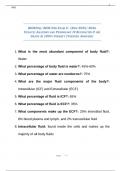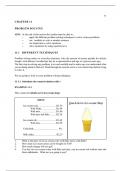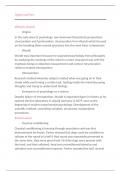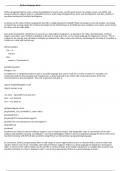ASSIGNMENT 1 SEMESTER 2 2023
, Carefully read the case below, from your prescribed reading list, and
answer the following questions:
Joint Stock v Absa Bank 2008 (4) SA 287 (SCA) The allocation of marks for
this case discussion is as follows:
SUMMARY
Summary of the Case "Joint Stock v Absa Bank 2008 (4) SA 287 (SCA)":
In this South African case, Joint Stock, the appellant, claimed ownership of
funds held in account 1313 with Absa Bank. The funds were deposited by
Joint Stock for a specific purpose, to pay subcontractors in a construction
project known as the Varvarinskoye project (VP) in Kazakhstan.
The account was held in the name of the sixth respondent, who was the
nominated account holder for the VP project. Absa Bank, the respondent,
claimed the right to set off the funds against debts owed to it by other parties,
including Joint Stock.
The court addressed the issue of whether Absa Bank's ownership of the funds
in the account prevented Joint Stock from asserting its claim to the money.
The court rejected the notion that ownership by the bank necessarily
precluded a legitimate claim by another party.
The court referred to previous cases where it was established that the account
holder might not necessarily have a proprietary right to the funds held in the
account. The critical question was whether the terms of the agreement
between the parties conferred any title on the account holder (sixth
respondent) to the funds.
It was found that the account was opened and operated on behalf of Joint
Stock for the specific purpose of warehousing the funds until payment to
subcontractors was authorized. The account holder, the sixth respondent, had
no personal claim to the money, and MDM (the company responsible for the
VP project) did not have the authority to withdraw the funds without Joint
Stock's authorization.

